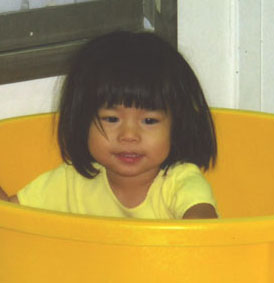OT for Children with Early Trauma Histories

Occupational Therapy for Children with an Early Trauma History including Medical Trauma,
Post-Institutionalized Children or Children Experiencing Attachment Disorder
Children who have a complicated history of separation, loss, early institutional care, and trauma have complex needs. Early traumatic and attachment histories are factors severely affecting ability to process sensations inherent in typical activities of daily life including but not limited to adequate tolerance for food and fluid intake, dressing appropriately for the weather, basic social interaction and attachment with family, tolerance for normal grooming etc. Because of their unique histories, these children’s sensory processing disorder can be quite dynamic. Many of the children intensely crave vestibular and proprioceptive sensations while simultaneously avoiding a variety of sensations which trigger traumatic memories. These triggers will change over time.
Occupational therapy for children with this kind of background is an emerging sub-specialty of the sensory integration treatment approach. There are a few occupational therapists who have been working with colleagues from the fields of social work, counseling and psychology to develop an understanding of how attachment and trauma interact with sensory integration disturbances, and how to adapt basic treatment approaches to address these very specialized needs. When looking for an occupational therapist to treat a post-institutionalized child, or foster child with attachment and trauma difficulty, look for one with experience and these kinds of connections.
While there are many occupational therapists well versed and experienced in basic sensory integration clinical practice, there are only a few across the United States who have a working knowledge of the complexities inherent to children with case histories which include complex trauma and attachment disorder. There is no way to quickly gain insight into these kinds of very special sensory processing needs other than to consult directly with a therapist who has the multiple backgrounds of sensory integration, trauma, and attachment interventions. The symptoms of post-traumatic stress (developmental trauma disorder) and attachment disorders make some of the typical sensory integration techniques (e.g. following the child’s lead, building a strong relationship between the therapist and child, helping the child feel independent) contraindicated and counterproductive.
